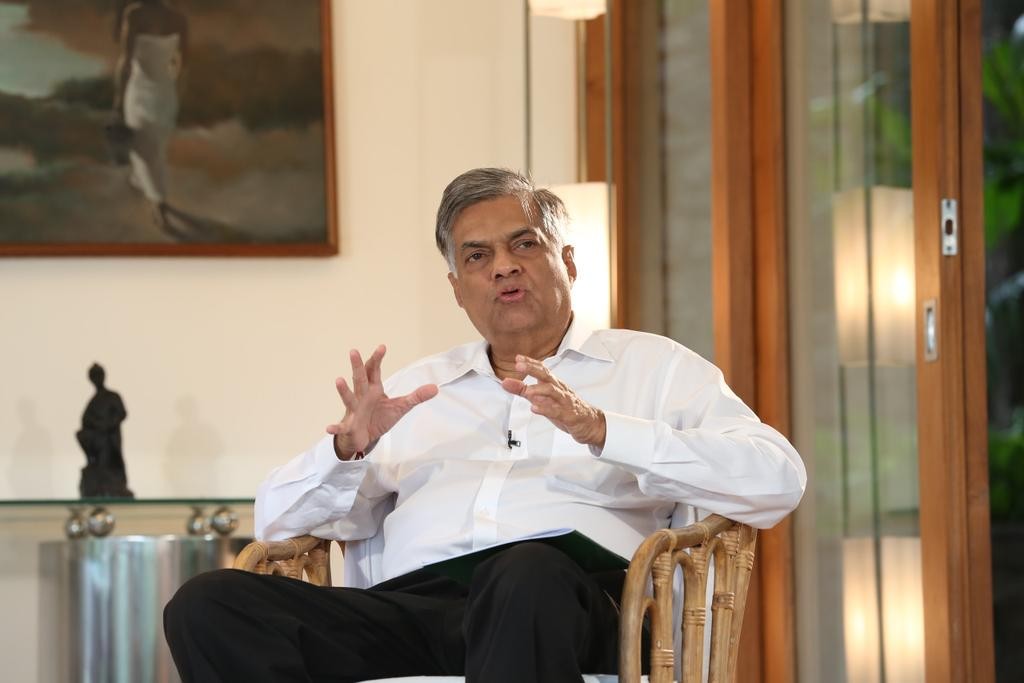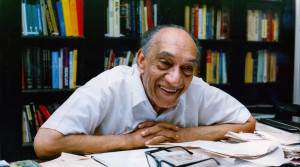Ranil: The Man & His Era

Ranil Wickremesinghe’s political narrative begins in 1977 with his election to Parliament at the age 28. His political path runs parallel to Sri Lanka’s triple lane highway to the Executive Presidency, Market Liberalization and the ethnic firestorm that engulfed and nearly consumed it. A study of his political biography is a discovery of the compelling complexities of our era. It is a vicarious witnessing of our descent in to a cruel ethnic inferno, suppression of a Sothern insurrection with a state brutality that has few parallels in human history, a firsthand experience of political obscenity with the ‘Lampu Kalagedi ‘referendum, the near total collapse of the rule of law and lastly our discovery and realization for a return to political civility and good governance. There remains another hurdle. The military resolution has not appeased memory and prejudice.
The four decades between 1977 and 2017 had different periods. There were periods of hope, change, experiment and promise. There were also periods of decay and degeneration. These multiple periods constitute the era that is mirrored by the political biography of Ranil Wickremesinghe.

The time context
When Ranil entered politics the Minster of Telecommunications [He later became Prime Minister and President] was a popular and coveted Minister. He could allocate telephones. He dispensed connectivity. He was the Czar of connectivity.
Today, we review his political biography at a time when the current incumbent of the same Ministry is wrestling with Google’s Internet Booming Balloons. Phone reloads are accessed at every street corner.In this age, connectivity is everybody’s entitlement and nobody’s business. But some things have not changed.
Monks Elle Gunawansa, Medagoda Abayatissa , Bengamuwe Nalaka – a random selection of a larger drift , are still in command and control of memory and prejudice of the majority community. To make matters worse Marxist political scientists have discovered that the Cholas invaded Lanka in 2nd century BC.
The politics of the project
The grand launch of the book ‘Ranil Wickremesinghe – a political biography’ at the BMICH is evidence of the earnestness of the enterprise.
The presentation of the first copy to the President, the introduction of Ranil – the subject of the book by Rajitha Senaratne the keeper of the conscience of the good governance government [Assuming that it has one] demonstrates that it is a sales pitch for a failing endevour now in its last lap. [This writer has given up hope]
There is an uncanny, spectral similarity to another political biography- ‘Premadasa of Sri Lanka’, brought out at a time when the siege ring was tightening around its protagonist.
Judging Ranil against history is not easy. Marx said ‘… men make their own history, but they do not make it just as they please, but under circumstances encountered, given and transmitted from the past. The tradition of all the dead generations weighs like a nightmare on the brain of the living…”
A study of Ranil’s politics demands empathetic imagination. Concocted history does not help.
Yet, the book serves a serious purpose. It compels us to search for a more authentic account and an honest explanation of events in the period from 1977 to 2017. The sum total of Ranil’s political biography is captured in the sardonic fatalism of poet W.B. Yeats. ‘Life is a long preparation for something that never happens. ‘
A dispassionate assessment
Ranil’s bold bid to reach a final negotiated settlement with Prabhakaran by signing a cease fire agreement testifies to the man’s political courage. A military victory is only a respite. It does not erase or remove the memory of multiple layers and levels of sovereignties that existed before the emergence of the modern nation state. The illusive civic nation made of competing tribal components needs cohesion that can be achieved only through negotiation and accommodation.


